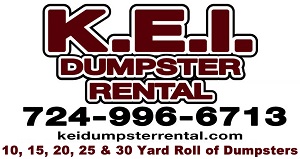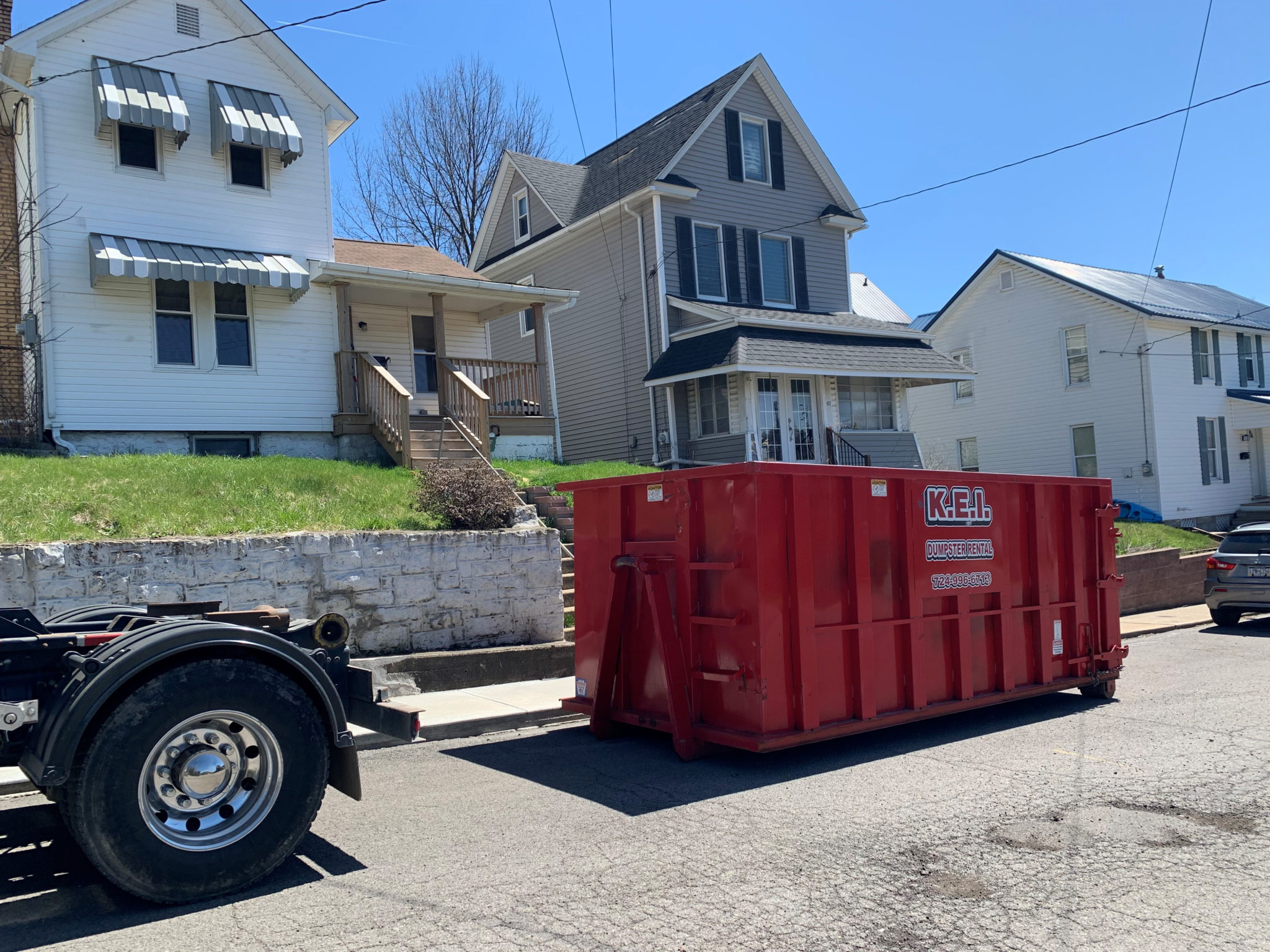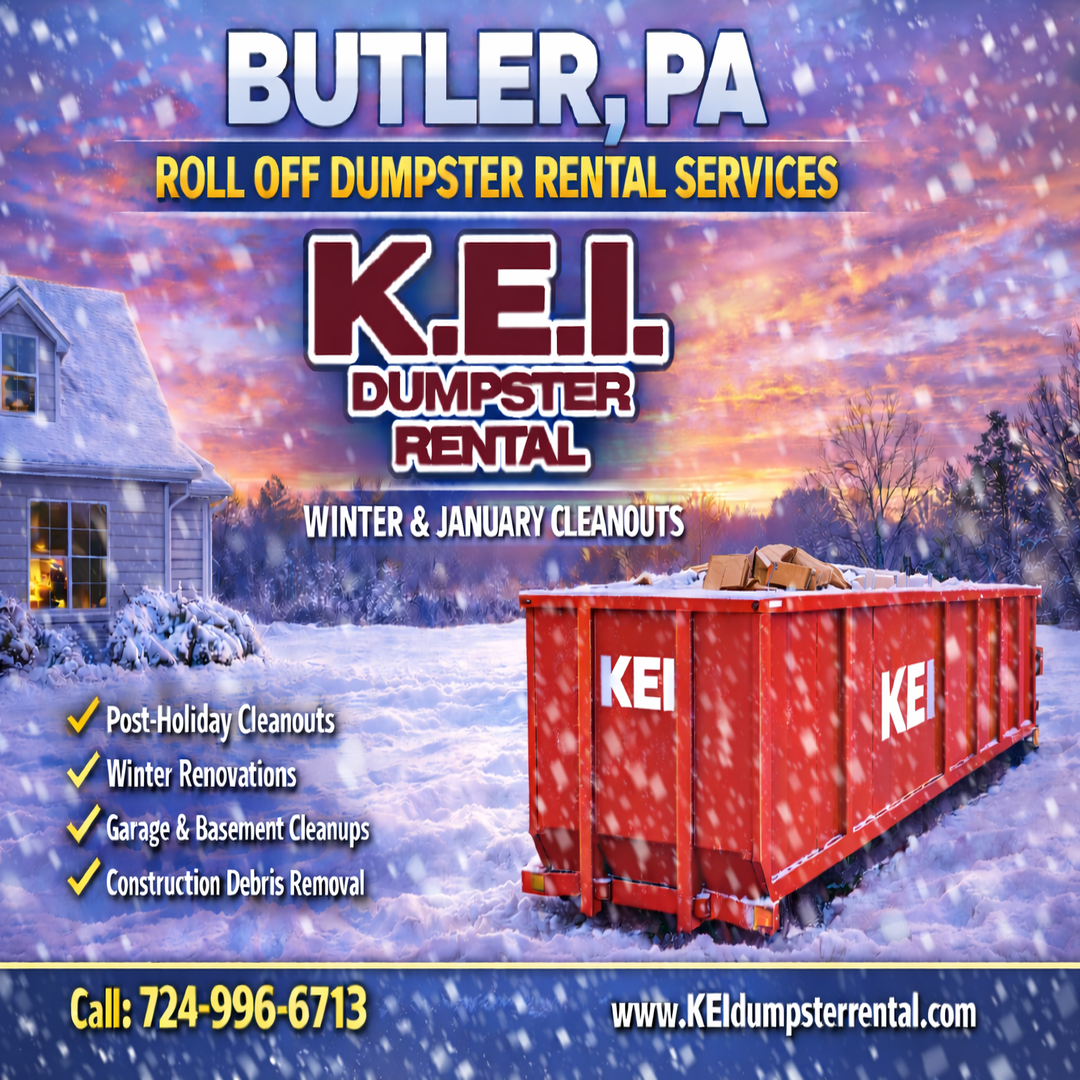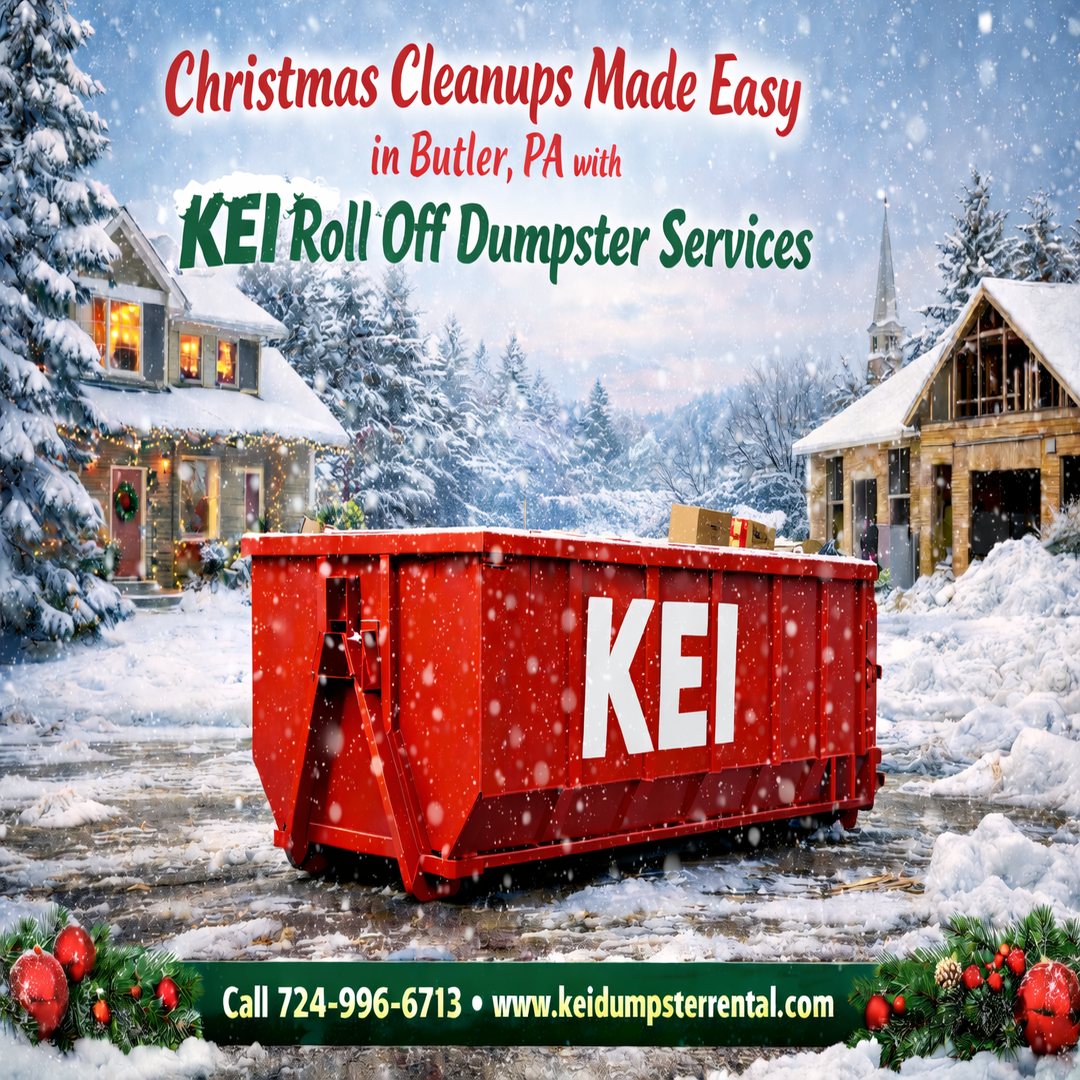Roll-off dumpster rentals are a convenient solution for homeowners, contractors, and businesses that need to dispose of large amounts of debris or waste. Having questions about the dumpster rental process isn’t uncommon.
From how much it costs to suitable delivery locations, we dive into your most frequently asked questions to help you make an informed decision before renting a roll-off dumpster for your next project.
What is a roll-off dumpster?
A roll-off dumpster is a large, open-top container designed for the temporary storage and removal of waste. Construction debris, household junk, and landscaping trimmings are all suitable for this method of disposal.
Unlike standard dumpsters from your local garbage collection service, roll-off dumpster rentals have a rectangular shape, include wheels for easy movement, and come with open tops for easy – and safe – disposal of items.
Roll-off dumpsters are delivered on-site and retrieved once full or when the rental period expires (whichever comes first).
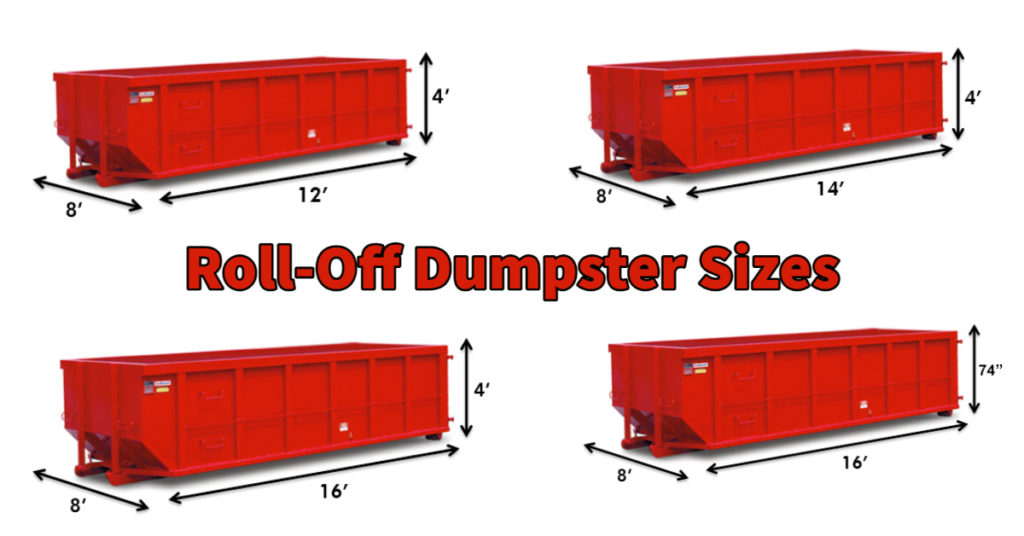
What are the typical dumpster rental sizes?
Roll-off dumpster rentals come in various sizes. Most range between 10 and 40 cubic yards. KEI offers the following dumpster sizes to its customers:
- 10-yard containers are 12 feet long, 4 feet high, and 8 feet wide. They hold up to 2 tons of material and are ideal for attic or basement cleanouts, small remodeling projects, and landscape debris.
- 15-yard containers are 14 feet long, 4 feet high, and 8 feet wide. They hold 2.5 tons of material and are ideal for decluttering, apartment cleanouts, small remodeling or construction projects, and yard debris.
- 20-yard containers are 16 feet long, 4 feet high, and 8 feet wide. They hold 3 tons of material and are ideal for new construction, large residential remodeling projects, and industrial sites.
- 25-yard containers are 16 feet long, 6.16 feet high, and 8 feet wide. They hold 3.5 tons of material and work well for large construction sites, large house remodeling projects, and industrial sites.
If you’re not sure what size you need, talk to one of the team members at KEI when ordering. They can recommend the perfect dumpster size to meet your needs.
How much does it cost to rent a roll-off dumpster?
The cost of renting a roll-off dumpster varies depending on its size, rental duration, location, and the type of debris or waste you need to dispose of.
Requesting a quote from KEI is the best way to estimate how much you should budget for a dumpster for your next project. The larger the dumpster, the more expensive it is to rent.
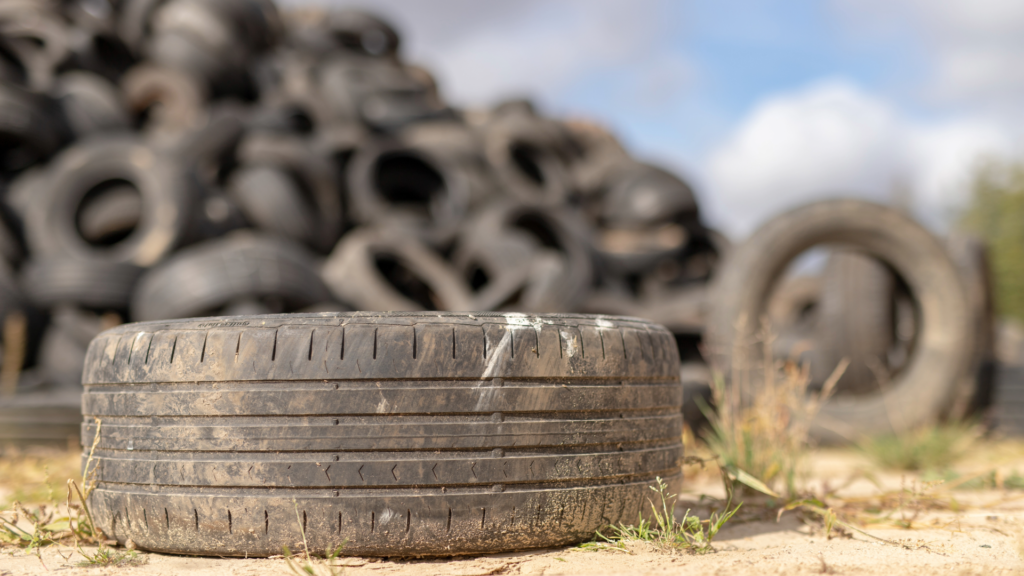
Are there any restrictions on dumpster rentals?
Yes, there are several restrictions on what you can dispose of in your dumpster rental. Roll-off dumpster rentals in Pennsylvania are subject to statewide regulations that prohibit KEI from collecting specific materials.
The following items are banned or restricted for collection in our dumpster rentals:
- Batteries
- E-waste items (computers, monitors, printers)
- Freon-containing appliances (air conditioners, freezers, refrigerators)
- Gasoline, oil, and other liquids
- Hazardous waste
- Paints
- Televisions
- Tires
Items containing corrosive or explosive components also are prohibited. If you’re not sure whether the materials you want to throw out can go into one of our dumpsters, ask one of our team members before scheduling delivery.
How long can you keep a dumpster rental?
The length of dumpster rentals ranges between 7 and 14 days depending on which company you use. KEI’s rental agreements provide a standard 7-day rental period unless other arrangements are made.
If you need to keep your dumpster longer or need drop-off and pick-up services to accommodate a large construction project, let a KEI team member know when you call to reserve your dumpsters. Additional fees apply to rentals that extend beyond the typical 7 day period.
Do I need a permit to rent a roll-off dumpster?
The short answer to whether you need a permit to rent a roll-off dumpster is it depends on where you live. Most communities in Butler County do not require permits if the dumpsters are on private property.
If you must place a dumpster in the street or in a location that is blocking public access, check with your local municipality about permitting requirements for those situations. Failing to obtain a permit if your local government agency requires one can lead to fines and other punitive actions.
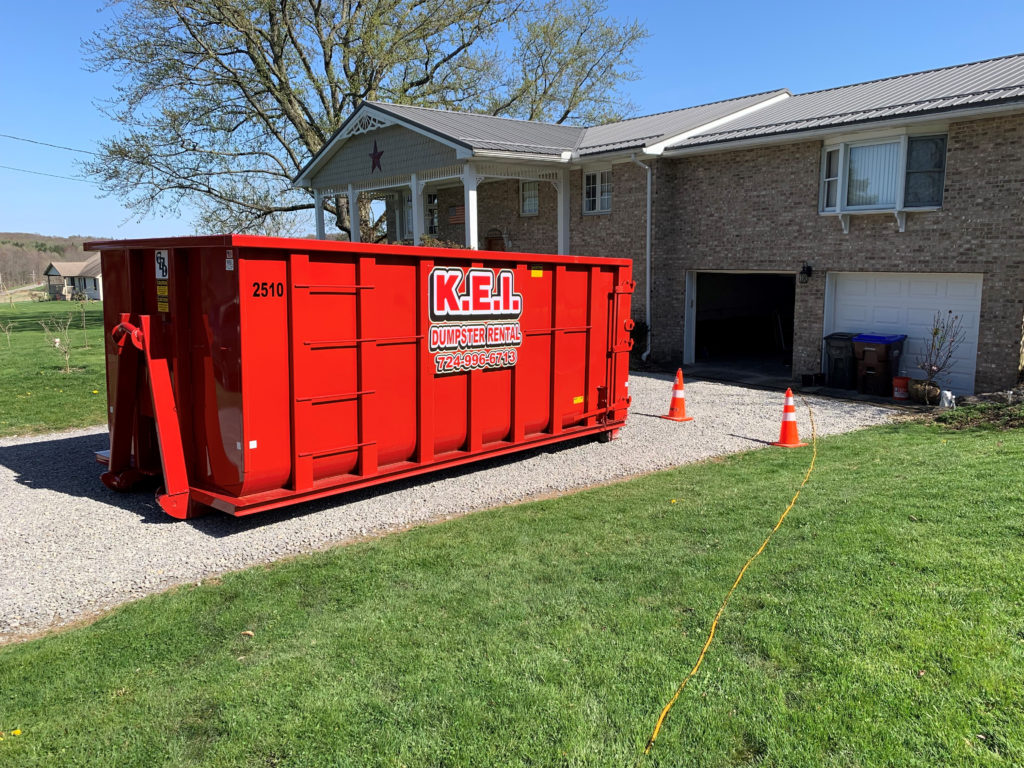
What’s the best place to put a roll-off dumpster?
The best place to put a roll-off dumpster rental is on a flat, solid surface where it isn’t blocking public access to roadways or other amenities. KEI recommends driveways if you have one available on your property.
In a pinch, we can place our dumpsters at the curb in the public street. However, you may need a permit from your local municipality before doing so.
You’ll also want to check that there is enough clearance over and around the space where the dumpster will go. Dumpster delivery trucks need ample space to maneuver during delivery and pick-up to prevent damaging your property or the dumpster.
What happens if you exceed the dumpster rental weight limit?
Roll-off dumpsters have weight limits for a reason. If you exceed yours, you may be subject to additional fees from KEI to cover the costs of disposing of the additional debris or waste. Garbage dumps charge dumpster rental companies for disposal based on the total weight of items placed in the bin.
Overfilled dumpsters also pose a safety risk to our drivers and the general public because the excess weight can cause the bin to tip during loading.
If you’re unsure whether you’re overloading your dumpster, give the rental company a call before you fill it up.
Can recyclables go into dumpster rentals?
As a rule, you shouldn’t put materials that can be recycled into a regular roll-off dumpster. Items like cardboard, glass, and plastic can be repurposed and reused instead of tossed into the bin with other items headed to the local garbage dump.
Some rental companies offer options for recycling certain materials such as wood, metal, and concrete. Check with your local dumpster rental company before you dispose of recyclable materials to see if they have any recycling programs or guidelines for separating recyclable materials.
